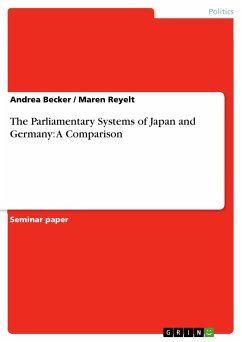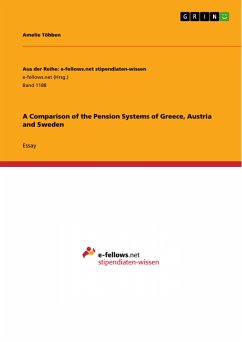Seminar paper from the year 2000 in the subject Politics - Region: Far East, grade: 1,0 (A), University of Wyoming (Department of Political Science), course: Government and Politics of Asia, language: English, abstract: This paper wants to compare the parliamentary systems of Japan and Germany, especially the structure of the governments, the Diet, and the Bundestag. In our paper we will answer the following questions: Why can both countries be compared? What historical prerequisites led to the recent political systems? How do the respective parts of parliaments and governmental institutions work together? Therefore, we want to concentrate on the question, where there are similarities in the political procedures and where these ones differ? Several reasons make both countries comparable. In this regard, our first item gives an overview over 130 years of a Japanese-German relationship, in which many parallel historical developments and treaties occurred. A description of the constitutional developments (item 3) shows that the Japanese Constitution of 1890 adopted general provisions (especially provisions for the emperor and the parliament) from the German Constitution of 1871. In addition, both postwar Constitutions were strongly influenced by the United States’ occupation politics, which established a parliamentary democracy in both countries. All of these are necessary fundamentals to show that both systems can be compared because of these several similar, historical, and political developments. Our fourth item compares the parliamentary systems today. Within the concluding remarks we will point out the differences and the similarities, both systems share or rather divide from each other. Japan and Germany can look back upon 130 years of a more or less deep relationship. Sure, there are some differences within this old official Japanese-German relationship, and there are parallels with other states. But despite of all possible relativity, the degree of the Japanese-German similarity is succinct, and it is possible to discover parallels between certain historical developments in Japan and developments in Germany. The official relations began on January, 24th 1861 when the Prussian East Asian Delegation under the Duke Friedrich zu Eulenburg and the Japanese Shōgunat completed the “Freundschafts-, Handels-, und Schiffahrtsvertrag” (Friendship, Trade-, and Navigation-Treaty). [...]
Bitte wählen Sie Ihr Anliegen aus.
Rechnungen
Retourenschein anfordern
Bestellstatus
Storno









